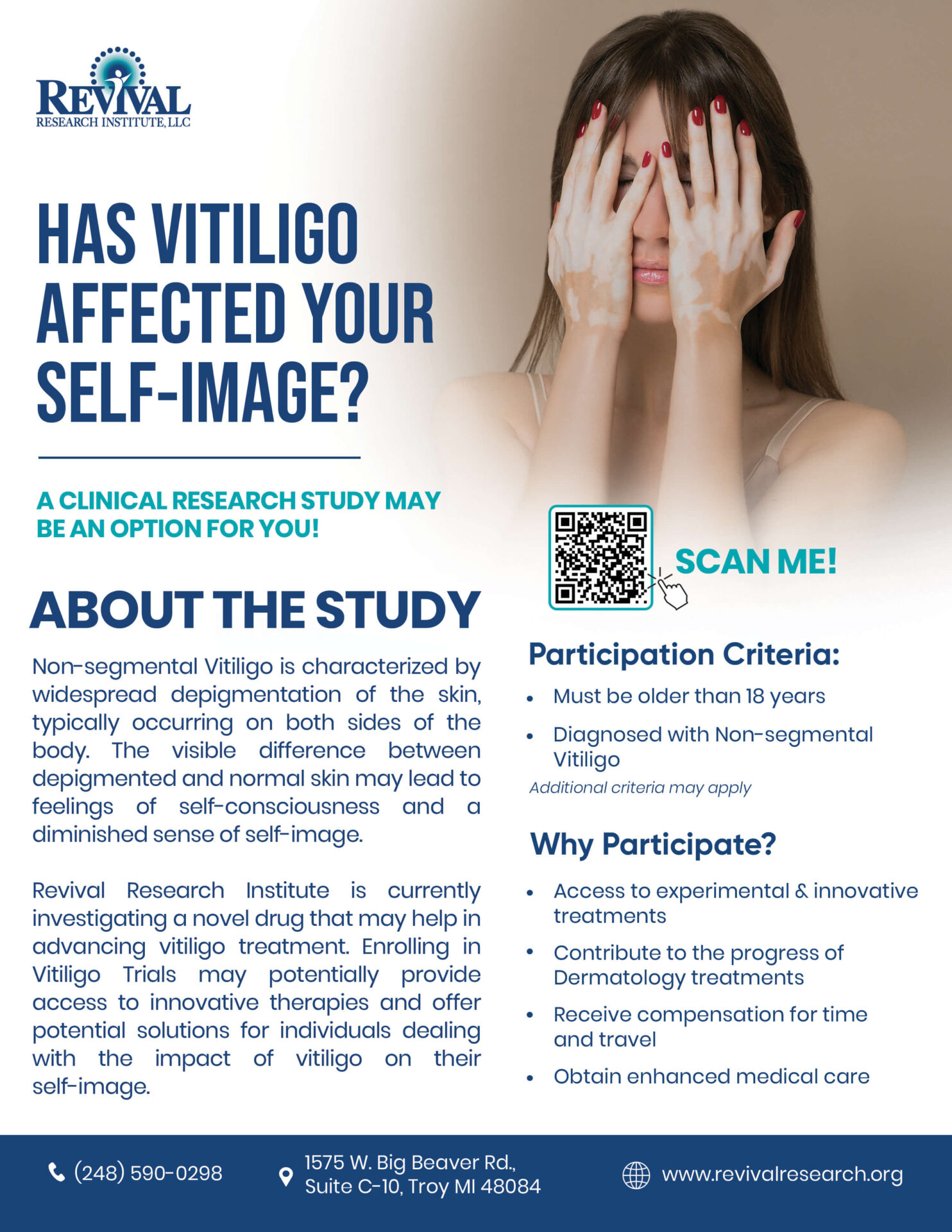A clinical research study may be an option for you!
Vitiligo is known to affect nearly 2% of the world’s population. Non-segmental vitiligo is characterized by a widespread depigmented patch of skin, typically occurring on both sides of the body. There is a need for potential non-segmental vitiligo clinical trials that may be able to help people with the condition.
You may be eligible to participate in the non-segmental vitiligo clinical trials if you:
- Are 18 years of age or older
- Have been diagnosed with non-segmental Vitiligo
*Additional criteria may apply
Although there is no cure for this skin condition, Revival Research Institute is conducting a clinical trial to observe the safety and efficacy of a potential vitiligo treatment that may be able to help people with Vitiligo.
**If you are eligible to participate in research studies, you will be compensated for your time and travel. You will receive study-related care from professional and experienced doctors and nurses. Volunteers eligible for the study will receive the study-related non-segmental vitiligo medication free of cost to them and their private health insurance.



